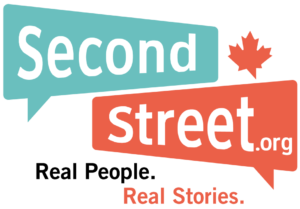RED DEER ADVOCATE COLUMN: We should be getting more dairy and eggs at lower prices
The last time the federal Conservative party selected a new leader, three years ago, Canada’s small but powerful dairy cartel influenced the outcome by throwing its weight behind Andrew Scheer, who narrowly defeated the second place candidate, Maxime Bernier.
Dairy farmers backed Scheer because Bernier wanted to tear up Canada’s supply management system, which forces Canadians to pay domestic dairy producers artificially high prices for milk, cheese and other products.
This time around, during the Conservative leadership race, or when other parties determine party policy, for that matter, committing to get rid of supply management would be a positive decision for consumers.
The supply management system harms consumers because it imposes tariffs of up to 300 per cent on imported milk, cheese, eggs and other poultry and dairy products.
At the same time, the government strictly controls production in the domestic market, reducing competition. Ultimately, Canadian farmers receive inflated prices for their products, and lobby government aggressively to maintain this special privilege.
In a recent video for the think-tank SecondStreet.org, Alberta resident Melissa From compared milk prices between Canada and the United States.
Her family of four consumes two large jugs of milk weekly, so she was interested in learning more about American milk prices.
Melissa found that her family was paying significantly inflated prices for milk – the price of milk in Calgary was about 63 per cent higher than across the border in Helena, Mont.
Melissa’s findings were corroborated by more comprehensive SecondStreet.org analysis. It compared milk prices in 15 stores across Canada with 15 stores across the United States, and found that milk in Canada was, on average, 29 per cent more expensive.
While Melissa estimated that higher milk prices in Canada were costing her household over $100 each year, studies have found that if you include the price difference for other dairy and poultry products, supply management costs the average Canadian family hundreds of dollars annually.
Despite this significant cost, supporters of supply management have argued that it is needed because domestic farmers cannot compete against subsidized agricultural exports from abroad.
But if the U.S. or other foreign governments are forcing their taxpayers to subsidize the groceries that Canadians consume, then why should we complain?
We wouldn’t protest, after all, if the U.S. government gifted each Canadian family a new car, even though this would depress the domestic automobile industry. So if they subsidize our groceries, why should we protest?
Another argument put forward by supply management advocates is that it is needed to ensure Canadians consume domestic products, which are supposedly of higher quality.
But if consumers really wanted to pay more for domestic products, they could simply choose to purchase milk that is made in Canada.
The most frequent argument for supply management and other forms of protectionism is that such policies are needed to protect domestic jobs and the incomes of domestic producers.
The critical error here is confusing economic benefits with economic costs. Dairy, egg and poultry products are economic benefits. The labour consumed in producing these products are economic costs.
We should want to have more dairy, eggs and poultry (more benefits), while using less labour (lower costs).
The economic purpose of free trade is to put labour and capital to their relatively most productive uses in order to achieve a higher output at lower costs.
If impeding Canadians from purchasing agricultural products from American producers enriches us by increasing the amount of domestic labour needed to produce food, the logical next step would be to stop Canadians from going to the grocery store, since having all families grow their own food would drive yet higher the amount of domestic labour needed to produce food.
This of course, would be madness.
Supply management is madness too, only on a smaller scale.
Matthew Lau is a contributing writer to think-tank SecondStreet.org, which is based in Regina.
This article originally appeared in the February 19th edition of the Red Deer Advocate.
Other Canadians Share Similar Experiences:
Don and Jackie, Winnipeg
Jerry and Becky, Calgary
Troy and Erika, Victoria
Jim Jones, Toronto
You can help us continue to research and tell stories about this issue by making a donation
or sharing this content with your friends. Be sure to sign up for our updates too!


